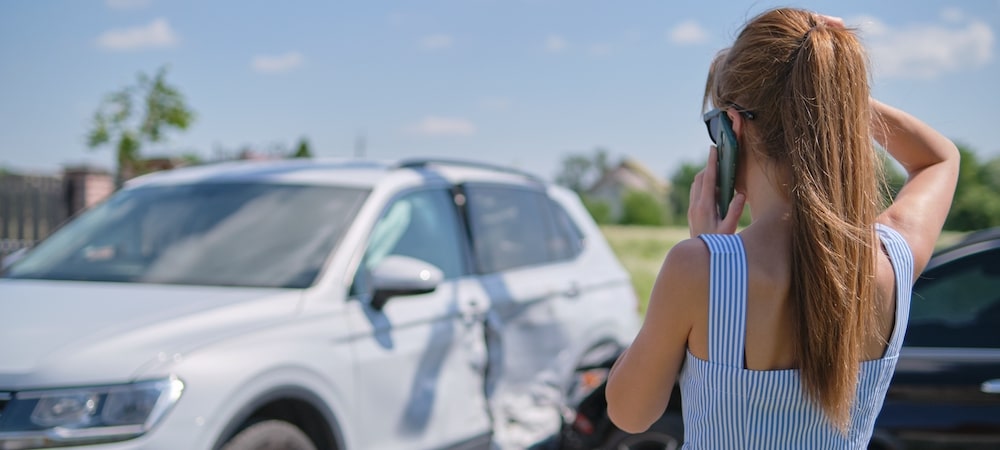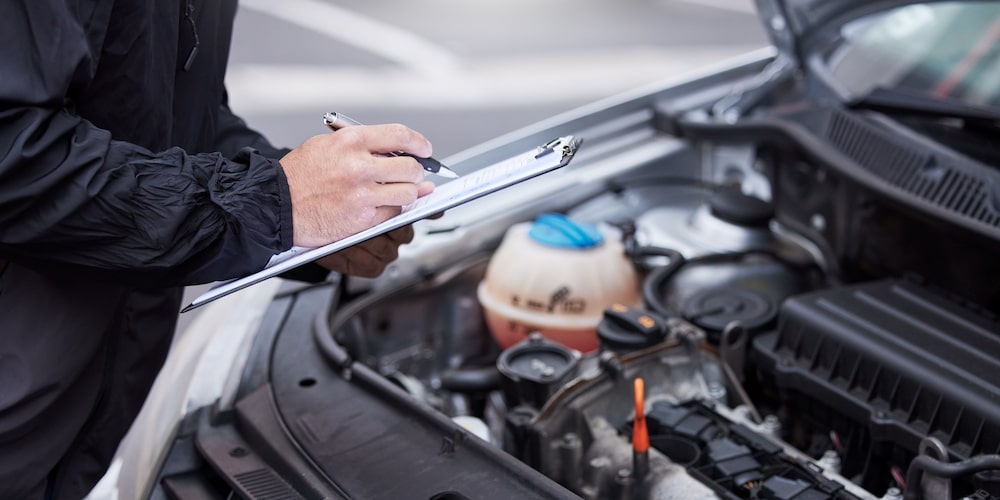In the event of a car accident in Illinois, exchanging insurance information is a crucial step for all parties involved. It ensures that drivers can make claims for damages or injuries through their insurance providers. Illinois state law requires that any driver involved in a vehicular incident must stop at the scene (if it’s safe to do so) and exchange information with the other driver, including insurance details. Failure to exchange the right information can lead to complications when seeking compensation and may also result in penalties as per state regulations.
Accurately sharing insurance information involves providing one’s full name, contact information, insurance company name, policy number, and the vehicle’s license plate number. It’s important to also take note of the make and model of the vehicles involved. In the age of smartphones, taking photos of the insurance cards, vehicle damage, and the accident scene can provide a clear record to facilitate the exchange process and support any subsequent insurance claims.
While the aftermath of an accident can be stressful, maintaining composure and gathering complete and accurate insurance information is necessary. This information becomes the basis for initiating an insurance claim. Insurance carriers use the details from the exchange to assess fault, damages, and coverage. Therefore, a thorough and calm approach to exchanging insurance information stands as the first step towards resolution after a car accident in Illinois.
Understanding Illinois Insurance Information Exchange
In Illinois, the process of exchanging insurance information after an automobile accident is structured to ensure that all parties involved have the necessary details to file claims and report the incident correctly.
Key Information to Collect at the Accident Scene
At the accident scene, individuals should prioritize the collection of certain information that is crucial for insurance purposes. The essential data to gather includes:
Policy Number: Ask for the insurance policy number of the other party involved in the accident.
Driver’s License: Make a note of the driver’s license numbers of all individuals driving the vehicles involved.
Insurance Company Information: Obtain the name and contact information of the insurance companies for all parties.
License Plate Number: Record the license plate numbers of all vehicles involved in the accident.
Contact Information: Exchange contact details with the other parties, such as phone numbers and addresses.
It is beneficial to take notes and, if possible, photographs to document the accident scene and the positions of the vehicles.
The Role of Law Enforcement Officials
Law enforcement officials play a fundamental role in the insurance information exchange process. When they arrive at the accident scene, they will:
Assess the Situation: Officers will evaluate the scene and ensure the safety of those involved.
File an Accident Report: They will create an official report, which often contains vital information for insurance claims.
Facilitate Information Exchange: If needed, law enforcement officials can help facilitate the exchange of insurance and contact information between the drivers.
Contacting the police is crucial, as having an official report may be required by the insurance company and can aid in the claims process.
The Process of Filing a Claim
After an automobile accident in Illinois, initiating a claim is a critical step toward recovering losses. Understanding how to navigate the claims process and determine liability ensures financial protection and legal compliance.
Initiating the Claims Process
The initial phase of the claims process begins at the accident scene where drivers should exchange insurance information promptly and accurately. It is advisable to gather names, contact details, insurance company names, policy numbers, and the license plate numbers of the involved parties. Illinois drivers can then contact their insurance provider to file a claim, where they will be assigned a claims adjuster to handle their case. Starting this process quickly is essential, as insurance companies often have time limits for reporting accidents.
Liability and Determining the At Fault Driver
Determining the at fault driver is a foundational aspect of the claims process. The insurance adjusters from each party’s insurance company will investigate the accident, review police reports, witness statements, and evidence from the scene to establish liability. In Illinois, having evidence to support a claim is vital since the state follows a modified comparative negligence rule, meaning that a driver’s ability to recover damages may be reduced if they are found partially responsible for the accident.
Legal Requirements and Documentation
When involved in a car accident in Illinois, individuals must adhere to specific steps to lawfully exchange insurance information and document the incident. This process is crucial for insurance claims and legal protection.
Illinois Car Accident Reporting
After an accident, Illinois law mandates that drivers must provide their name, address, and vehicle registration number to the other parties involved. If there are injuries, deaths, or property damage exceeding $1,500, drivers are required to file an accident report with the Department of Transportation within 10 days of the incident.
Required Information:
- Driver’s full name and address
- Vehicle registration number
- Insurance company name and policy number
Importance of the Police Report
The police report serves as a vital document, providing an objective account of the accident. It typically includes the officer’s assessment of the incident, a diagram of the accident scene, statements from the parties involved, and any witnesses. Parties should obtain a copy of this report for their records, as it is often required by insurance companies during the claims process.
The report offers an unbiased description of the event. It can greatly impact the resolution of disputes and claims.
Handling Property Damage and Insurance Companies
In Illinois, dealing with property damage from an automobile accident means navigating insurance claims and communicating effectively with insurance companies. Accurate information exchange and knowledge of insurance policy limits are essential.
Filing a Property Damage Liability Claim
When they experience property damage in a car accident, individuals need to file a property damage liability claim with the at-fault driver’s insurance company. Initially, the claim requires details about the extent of the damage and the insurance policy of the other driver involved. Illinois law stipulates that all drivers must carry a minimum amount of property damage liability insurance, which covers damages they might cause in an accident.
Steps to File a Claim:
- Notify the other driver’s insurance company about the accident.
- Provide evidence of the damage (photos, repair estimates).
- Share your insurance information if the damage may exceed the other driver’s coverage limits.
Communicating with the Involved Parties’ Insurers
Effective communication with the insurers of all parties involved is crucial. This involves presenting your case clearly to both your own insurance company and the other driver’s insurer.
With the other driver’s insurer: Be direct about your expectations for compensation based on the damage to your property.
With your insurer: Understand your own insurance policy’s coverage and work with your agent to ensure the damages are assessed accurately.
Key Information to Share:
- Names and contact information of all parties involved
- Insurance companies and policy numbers
- Descriptions of the vehicle damage and repair costs estimates
After the Claim: Vehicle Repairs and Follow-Ups
Once an insurance claim is filed in Illinois, drivers typically focus on getting their vehicles repaired and ensuring their claims are processed efficiently. This stage involves selecting a reputable repair shop and staying updated on the claim’s progress.
Selecting a Repair Shop
When choosing a repair shop, drivers should look for facilities that have a strong track record of satisfactory repairs and customer service. They should verify that the shop is licensed to operate in Illinois and confirm whether the repair shop is pre-approved or recommended by their insurance provider. It’s important to compare repair estimates and ask for a detailed explanation of the work to be done on the vehicle.
Monitoring the Status of Your Claim
Throughout the repair process, it is crucial to monitor the status of the claim. Policyholders should maintain regular contact with their insurance adjuster to stay informed about any updates or additional information needed to process the claim. This ensures that the repair work will be covered by the insurance policy as expected. Communication between the policyholder, insurance company, and repair shop helps facilitate a smooth experience.
844 See Mike Can Help After a Car Wreck
If someone refuses to exchange information after a car accident or there is a dispute over who is at fault, a lawyer from 844 See Mike can assist in several ways.
Investigate: A lawyer from our Chicago personal injury law firm will help gather evidence to support your version of events. This might include speaking with witnesses, obtaining traffic camera footage, consulting with accident reconstruction experts, or obtaining police reports.
Negotiate with Insurance Companies: A Chicago personal injury lawyer can communicate and negotiate with the insurance companies on your behalf to ensure that your rights are protected and you receive fair compensation for damages and injuries.
Mediation: Your lawyer may suggest a mediation session where a neutral third party can help both sides come to an agreement without going to court.
Litigation: A lawyer can help develop a legal strategy tailored to the specifics of the case, which could involve proving negligence or demonstrating the extent of damages and injuries sustained. If the dispute cannot be resolved through negotiation or mediation, 844 See Mike can file a lawsuit on your behalf. The litigation process involves formal discovery (such as depositions and interrogatories), pre-trial motions, and possibly a trial where the facts of the case will be presented and a decision made.
Representation in Court: If the case goes to court, your lawyer will represent you, presenting evidence and arguing on your behalf to prove the other party’s fault and seek compensation for damages.
Often, cases are settled out of court. A lawyer from 844 See Mike can negotiate a settlement with the other party or their insurance company to compensate for damages and injuries without the need for a trial. If the other party or their insurance company makes a settlement offer, a lawyer can provide advice on whether it is a fair offer and whether you should accept it or continue to negotiate.
If you find yourself in a situation where you need help after a crash with medical care, lost wages, and other expenses, it is advisable to contact 844 See Mike so we can help you get the financial compensation you deserve.





